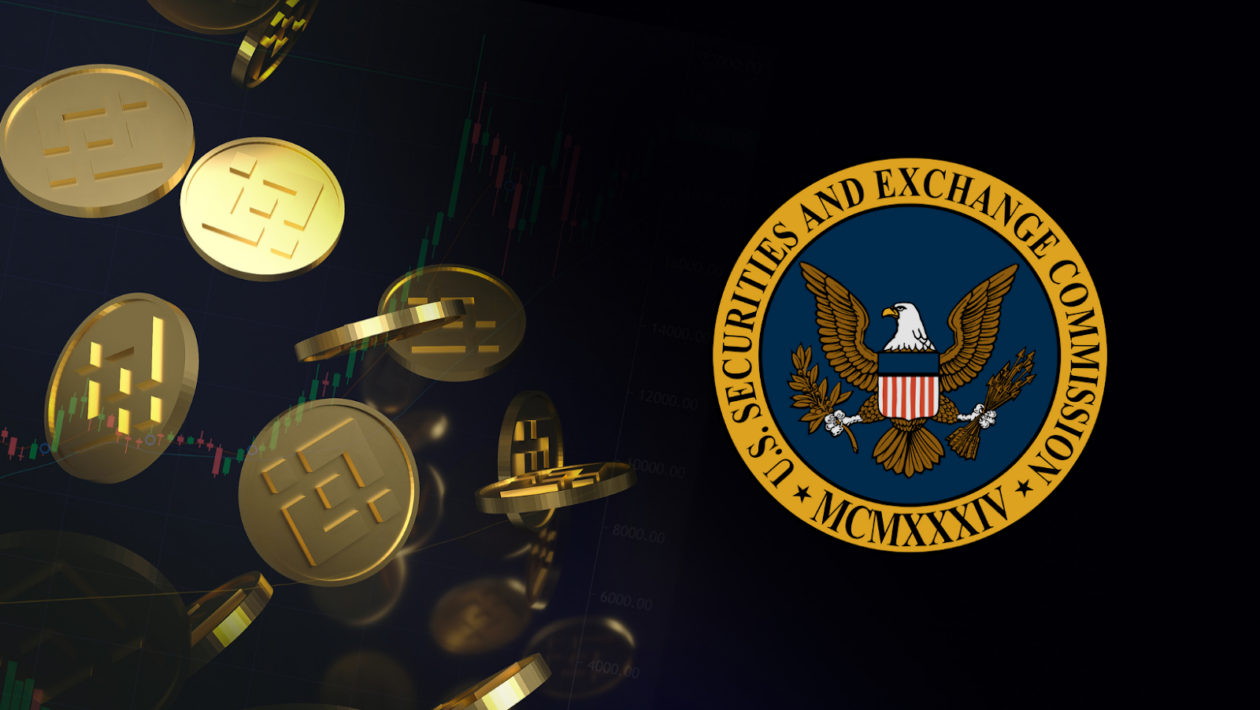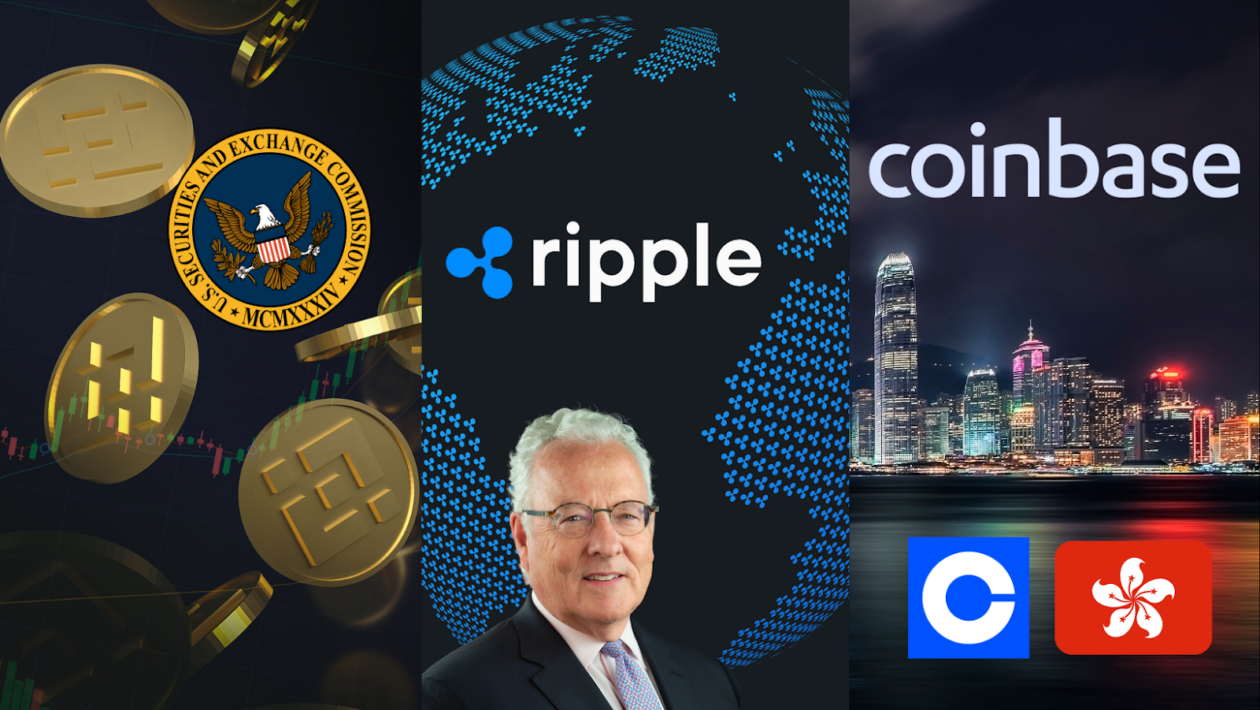In this issue
- U.S. crypto crackdown: Collateral damage
- Ripple: Mixed messages
- Hong Kong: Courting Coinbase
From the Editor’s Desk
Dear Reader,
Last week, I was in Hong Kong as Forkast Labs announced our partnership with The Sandbox to index the metaverse. We held the event in the trendy Sheung Wan district and we had double the capacity than we had expected. The Web3 industry crowd in the city of 7 million was excited and the room was buzzing. Much was discussed, plans were laid, and opportunities were seeded. That’s the mood halfway across the world from the chill that is only deepening in the U.S.
It’s often said that one person’s loss is another person’s gain. We are seeing that play out as U.S.’s regulatory assault on the cryptocurrency industry intensifies.
The fact that USDC stablecoin issuer Circle was granted a license to operate as a major payment service provider by Singapore’s central bank in the same week as the Securities and Exchange Commission was busy bringing the roof down on crypto in the U.S. could not have offered a clearer bellwether of gainers and losers.
If U.S. regulators’ hostility to crypto isn’t already benefiting other jurisdictions’ efforts to get a slice of the action as the industry develops, just give it time.
Not even a lot of time: Just this past weekend, a Hong Kong legislator invited SEC-targeted U.S. crypto exchange Coinbase — and indeed “all global virtual asset trading operators” — to set up shop in the city. The lawmaker’s callout came just two weeks after Hong Kong implemented a much-anticipated regulatory framework for virtual asset trading platform operators — a.k.a. crypto exchanges — that’s the centerpiece of an initiative aimed at making the city an international crypto hub.
Movement is afoot.
Dubai has been busily burnishing its credentials as a crypto hub for the past year, and continues to attract crypto exchanges thanks to a favorable regulatory environment and rapid licensing approvals.
On a grander scale, the European Commission last month approved the EU’s Markets in Crypto-Assets regulation, a comprehensive regulatory framework for the sector that will bring it into the mainstream from next year in a way that Americans might find difficult to imagine amid the cack-handedness of Washington’s punitive approach.
And let’s not forget the United Kingdom, whose prime minister, Rishi Sunak, has long been an advocate of digital financial innovation. It’s likely that the regulatory melee in the U.S. will only add to the UK’s attractiveness as a destination for crypto companies seeking regulatory refuge but which may prefer the steady hand of the Bank of England to that of less storied authorities in jurisdictions such as the Emirates.
As U.S. regulators persist with their regressive stance, it feels appropriate to quote an American pioneer from a field at least as innovative as crypto decades ago — astronaut Buzz Aldrin, who said: “For every winner, there’s a loser. And that person didn’t really need to lose. They just didn’t understand the game plan.”
The game is on.
Until the next time,
Angie Lau,
Founder and Editor-in-Chief
Forkast.News
1. Crypto-quake continues

Binance.US, a crypto exchange set up by Binance chief Changpeng “CZ” Zhao to serve U.S. clients, could see its operations “quickly grind to a halt” if a U.S. court rules in favor of a Securities and Exchange Commission (SEC) request to freeze its assets, the company has said in a court filing. The SEC and Binance.US have been ordered to compromise and avoid a complete asset freeze. Meanwhile, trading platforms eToro and Robinhood have delisted multiple cryptocurrencies named in SEC lawsuits as securities.
- In the filing, Binance.US urged the federal judge to deny the SEC’s motion last week to freeze the assets of the entities that operate Binance.US after the SEC sued Binance and Zhao on June 5 for alleged violations of securities laws.
- Binance.US said in the filing: “With a freeze of all corporate assets, banking partners would most likely cease to honor requests to transfer funds for any purpose, including customer redemptions.” The company said one of its banking partners had already informed it that it would halt services to Binance.US starting June 14.
- On Friday, Binance.US suspended U.S. dollar deposits to “protect customers” amid intensifying regulatory pressure. The exchange’s liquidity plunged nearly 80% in a week as market makers and traders “fled the exchange en masse,” according to a note published by crypto data analysis firm Kaiko on Monday.
- Investment platform eToro on Monday blocked its U.S. customers from opening new positions in Algorand (ALGO), Decentraland (MANA), Dash (DASH) and Polygon (MATIC), all of which have been named as securities by the SEC.
- Robinhood announced last week that it would stop supporting Cardano (ADA), Polygon (MATIC), and Solana (SOL) on June 27. After that deadline, all of the three cryptocurrencies still held in Robinhood accounts will be sold at their market value and the proceeds will be credited to holders’ Robinhood accounts.
- “It’s not surprising that when there is a lack of clarity, contradictory guidance, and a culture of fear instead of collaboration with regulators that some entities will choose to simply start leaving markets entirely,” Cardano founder Charles Hoskinson said in response to Robinhood’s delistings, according to a June 9 tweet by Fox Business journalist Eleanor Terrett.
- The crackdown by the SEC, which also sued crypto exchange Coinbase last Tuesday for allegedly breaching securities rules, has hit the crypto market hard. The price of Binance’s BNB has fallen more than 9.6% in the past seven days, and Cardano, Polygon and Solana have lost more than 20% over the same period, according to CoinMarketCap.
- The SEC’s enforcement actions have prompted some reaction among U.S. lawmakers. Representative Warren Davidson introduced a bill named the SEC Stabilization Act on Monday, seeking to restructure the regulator and remove Gary Gensler as its chair.
Forkast.Insights | What does it mean?
The fallout from the filings against both Binance and Coinbase in the U.S. has hit crypto markets for two reasons. The first and most obvious is that the U.S. arm of the world’s largest crypto exchange by volume — and America’s most popular exchange — will no longer have access to the world’s biggest single crypto market.
The second, and likely more damaging, impact has been the SEC’s move against cryptocurrencies more broadly. For anyone who has followed the SEC’s approach to crypto, it should have come as no surprise.
When it filed its cases against Bittrex and Kraken earlier this year, the SEC’s argument was that both exchanges were selling unregistered securities. In its most recent filing against Binance, however, the SEC’s case is more focused on the commingling of funds and other potentially fraudulent activity. Yet the Coinbase case appears to mirror those involving Bittrex and Kraken.
This has meant the focus has shifted from the exchanges themselves to the tokens available on them, raising enough questions for companies such as Robinhood and eToro to stop offering them on their platforms.
That doesn’t mean an end to crypto in America. Other projects that haven’t been listed as securities offer lessons for others to follow, specifically on how they raised money and from which types of investors.
Projects that steered clear of U.S. public sales in favor of private sales to accredited investors appear to have been left alone by the SEC. Although those named in the regulator’s legal actions have a fight on their hands, a path for crypto in America is slowly emerging, most notably the use of “simple agreements for future tokens.”
These agreements avoid the thorny issue of whether tokens are securities by selling contracts for cash as opposed to tokens themselves. Although they are available only to accredited investors, they offer a tool for fundraising that’s compliant with current regulation.
2. Say one thing…

William Hinman, a former director of corporation finance at the U.S. Securities and Exchange Commission (SEC), said in a speech five years ago that Bitcoin and Ether were not securities, according to documents released on Tuesday as part of a lawsuit brought by the regulator against crypto company Ripple.
- “We do not need to see a need to regulate Ether, as it is currently offered, as a security,” Hinman said in a June 4, 2018, email in which he added that the regulator would hold a call with Ethereum co-founder Vitalik Buterin later that week, “to confirm our understanding of how the Ethereum Foundation operates.”
- Soon after the documents were released, Ripple Chief Executive Brad Garlinghouse tweeted Tuesday: “For the SEC to sue @chrislarsensf and me personally for allegedly selling unregistered securities when their own Division Head deliberately created confusion about this…well, I don’t have a single polite word to describe this deplorable, politically-motivated overreach.”
- The documents were released at a fraught moment for the crypto industry as the SEC presented a motion to freeze the assets of Binance.US as part of a lawsuit against the exchange.
- In a speech, Hinman said that although cryptocurrencies such as Bitcoin and Ether may start off as securities, they could become more akin to commodities once they became “sufficiently decentralized.”
- Although Hinman has argued that the speech was his personal opinion, it was published on the SEC’s official website and “touted … as guidance,” with former SEC chair Jay Clayton publicly pointing to it, Ripple’s Chief Legal Officer Stuart Alderoty tweeted on Tuesday.
- The documents relating to the speech were published after an 18-month legal battle to have them released, according to Garlinghouse. XRP investors hope that Hinman’s remarks on Ether will mean that the XRP token would not be treated as a security.
- Alderoty tweeted that Hinman’s speech “contained made-up analysis with no basis in law … exposed regulatory gaps … and would create … not just confusion, but ‘greater confusion’ in the market.”
- Alderoty also said the speech should be removed from the SEC’s website, and he demanded an investigation of why the SEC had “touted” the speech, “knowing” the confusion to it would give rise.
- Despite the initial surge, XRP had fallen 12.6% since the release of the Hinman documents, when it was trading at US$0.47, according to CoinMarketCap.
- Gabriel Shapiro, a U.S.-based attorney and the general counsel at blockchain firm Delphi Labs, wrote on Twitter Tuesday: “Hinman emails are a nothingburger though great for Ether. No idea why Ripple thinks these emails help Ripple’s case.” Shapiro added that the documents were not the bombshell compared to the “huge hype” given to them.
Forkast.Insights | What does it mean?
William Hinman’s dividing line between Ether, Bitcoin and everything else might help Ripple’s defense in its legal battle with the SEC, but it does little to help others understand the commission’s confusing approach to regulating crypto markets more broadly.
Stuart Alderoty, Ripple’s chief legal officer, said on Twitter earlier this week that Hinman’s speech was flagged by his SEC colleagues because it was flawed and would muddy the waters even further on the question of whether cryptocurrencies should be treated like securities. Hinman, according to Alderoty, ignored their warnings.
Confusion has resulted elsewhere, too. The 19 tokens named in the SEC’s lawsuits against Coinbase and Binance have found themselves on the wrong side of securities law, but others that raised capital in similar ways appear to have avoided such troubles. Why?
In the U.S. president’s annual economic report earlier this year, the White House stated: “Regardless of the label used, a crypto asset may be, among other things, a security, a commodity, a derivative, or another type of financial product, depending on the facts and circumstances.”
The SEC, thus far, hasn’t shared its working thesis of how it decided the 19 tokens (and Ripple) were lawbreakers but not others, suggesting that it prefers legal action over regulatory clarity. Ripple will try to exploit that muddled view, but the persistent uncertainty will do little to help others.
3. Open for business

A legislator in Hong Kong has encouraged Coinbase and other international cryptocurrency exchanges to set up operations in the city, following the implementation of its new regulatory framework for retail crypto trading on June 1.
- Johnny Ng, a member of Hong Kong’s Legislative Council and the Chinese People’s Political Consultative Conference, an advisory body to China’s ruling Communist Party, tweeted Saturday that he welcomed all global virtual asset trading platform operators, citing Coinbase by name, to expand to Hong Kong.
- Ng, known for his advocacy of Web3, in January said that Hong Kong should consider developing the e-HKD, the city’s planned central bank digital currency, as a stablecoin linked to decentralized finance.
- Last week, the U.S. SEC sued Binance and Coinbase, two of the world’s biggest crypto exchanges, for allegedly breaching securities rules.
- As the U.S. regulator targets crypto, it has been suggested that Hong Kong might function as a sandbox in which China can assess the industry.
- Bank of China International Holdings Limited, an investment bank wholly owned by state-owned Bank of China, has issued 200 million yuan (US$27.9 million) of digital structured notes on the Ethereum blockchain in Hong Kong, making it the first Chinese lender to issue a tokenized security in the city. Bank of China reportedly started to service crypto firms in Hong Kong in March, according to a Bloomberg report.
- Hong Kong’s rollout of new rules for virtual asset trading platform operators, otherwise known as crypto exchanges, could set an example for other jurisdictions looking to open up to retail crypto trading, according to Gary Tiu, executive director and head of regulatory affairs at Hong Kong-based crypto exchange OSL.
Forkast.Insights | What does it mean?
Hong Kong lawmaker Johnny Ng, who includes “Web3” and “smart city” as part of his Twitter profile description, has contacted Coinbase about its potential expansion to Hong Kong, he said on Twitter on Wednesday.
Although one might view Ng’s words as political rhetoric, his pro-cryptocurrency stance reflects Hong Kong’s overall regulatory attitude: a risk-based approach toward regulating crypto assets and stablecoins.
Coinbase has eyed opportunities outside the U.S. as it faces legal jeopardy from the SEC. In May, the Nasdaq-listed crypto exchange opened an offshore derivatives exchange in Bermuda to allow institutional clients to invest in Bitcoin and Ether via perpetual futures contracts that can offer leverage up to a factor of five.
Coinbase may have some serious thinking to do if it wants to expand globally, given its heavy reliance on a U.S. revenue stream. In the first quarter of this year, its U.S. earnings accounted for US$686.8 million of total earnings of US$772.5 million, according to its latest financial report.
Binance has a strong presence in Asia, while most of Coinbase’s operations remain in the U.S. That means it would be complex for Coinbase to shift the focus of its operations outside the world’s largest economy, especially if moving to Hong Kong would not necessarily put it out of the reach of U.S. regulators. Given that, it remains to be seen how the SEC’s crackdowns on Binance and Coinbase will play out on an operational level, and what actions two of the world’s biggest crypto exchanges will take to mitigate their legal risks.




